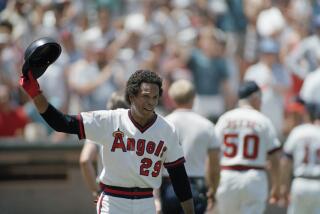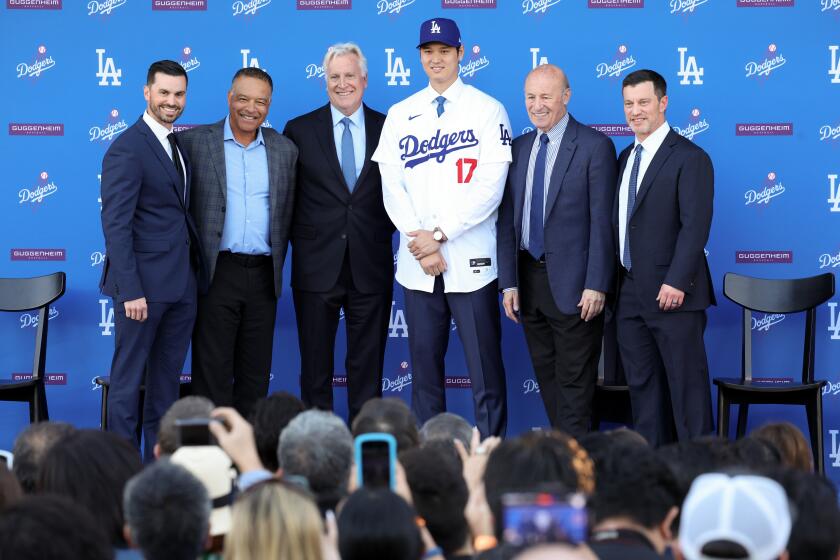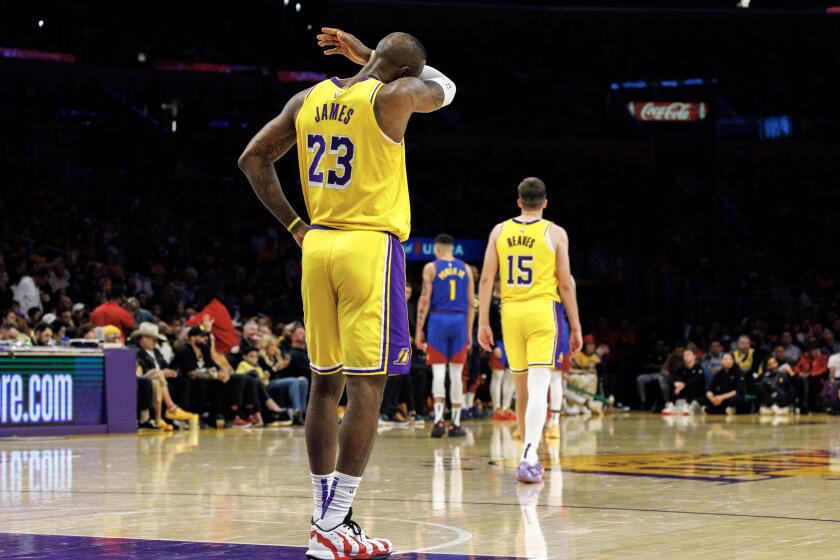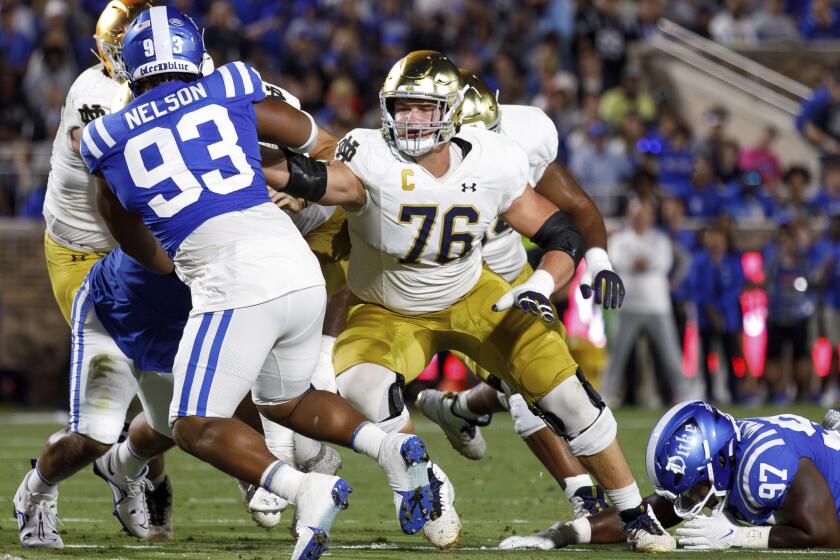Angels, Red Sox discontinue pension plans for non-uniformed personnel
Jerry Reinsdorf of the Chicago White Sox opposed last January’s vote by fellow Major League Baseball owners to allow individual teams to reduce or discontinue pension plans for non-uniformed personnel, a group that includes front-office executives and support staff, scouts, minor league staff and some broadcasters.
With the sport raking in $9 billion in annual revenues and clubs handing out eight-figure contracts to players like Halloween candy, “Why would we want to hurt the little guy?” Reinsdorf said at last week’s winter meetings. “My concern was that the people hurt the most would be older employees and mostly the scouts.”
The Angels and the Boston Red Sox are among the first teams to discontinue those pension plans. Some 200-300 non-uniformed employees from each club were informed in November that, as of Jan. 1, teams would no longer contribute to the plans, and new hires would not be able to enroll in them. Other teams are expected to follow suit.
But the public outcry some anticipated with the moves of the Angels and Red Sox has not materialized. Existing pension commitments to fully vested employees are not affected, so funds from those defined benefit plans will not disappear.
And the Angels and Red Sox have beefed up existing defined contribution plans — or 401(k) plans — to offset the reduction and eventual elimination of pension plans, bumping matching contributions from about 4% to as much as 10%, according to employees of both teams.
“This wasn’t a cost-saving move,” Angels President John Carpino said when asked how much money the team would save by eliminating pension plans. “It’s about flexibility for employees. We looked at it long and hard and felt the defined contribution program was a better option.”
Under team-funded pension plans, employees receive a fixed monthly benefit upon retirement based on a percentage of their top five earning years. The plans can’t be transferred from one team to another or to an outside company, and employees have no control over how funds in the plans are invested.
The 401k plan is funded by employees with pre-tax and after-tax payroll deductions, a percentage of which is matched by the teams. Employees can choose how aggressively or conservatively they invest funds, and the plans are portable. Employees can also borrow against the plans.
“Looking at it from the outside, you could say, ‘Yeah, it kind of stinks,’ but they’ve given us a high-powered 401k, which is nice,” a veteran scout from one of the teams said. “You can control how your money is invested. You can borrow against it. We just have to change gears and try to play catch-up with the 401k.”
Carpino said his team’s decision to scrap the pension plan reflects a nationwide shift from defined benefit to defined contribution plans.
According to a survey of Fortune 500 companies by the consulting firm of Towers Watson, 299 companies — about 60% -- offered defined benefit (pension) plans in 1998, while 195 (40%) offered only defined contribution plans.
By 2013, the number of companies offering only defined contributions plans had almost doubled, to 382 (76%), while only 118 companies (24%) were offering pension plans.
“The business environment today has changed dramatically,” Carpino said. “We had a pension plan and a 401k. Nothing is being taken away. We’re creating more flexibility, more control. If you didn’t have a 401k program and you took away the pension plan, then yes, that would hurt. But that’s not the case.”
The lucrative pension benefits for former players and uniformed personnel are not affected.
In an interview with ESPNNewYork.com after last January’s vote, Rob Manfred, MLB’s chief operating officer and soon-to-be commissioner, objected to any suggestion that owners were targeting baseball’s lower-paid employees while they and players continue to reap huge sums.
“Large corporations all over America make adjustments in their pension plans,” Manfred told the website. “That’s like saying because the top line is billions of dollars, they shouldn’t be making changes to their pension plans. … I just don’t think it’s so simple as to boil it down to there’s a bunch of money and they’re taking away from people’s benefits.”
Manfred added that the change would “give clubs the ability to put together what they feel is a competitive pension program in their particular market.”
Reinsdorf said he would continue to fund pension plans for non-uniformed White Sox personnel, but he didn’t necessarily object to the actions of the Angels and Red Sox, especially when told of the measures both clubs are making to boost 401k plans.
“I have no problem with anyone who changes to a defined contribution plan if they didn’t hurt anybody,” Reinsdorf said. “The new plan may end up being just as good.”
More to Read
Get our high school sports newsletter
Prep Rally is devoted to the SoCal high school sports experience, bringing you scores, stories and a behind-the-scenes look at what makes prep sports so popular.
You may occasionally receive promotional content from the Los Angeles Times.







